Once, in a time when the world was still young and the lines between heaven and earth were thin, there lived a virtuous sage named Shilada. Though he had accumulated great merit through penance and service, his heart ached for one unfulfilled desire, a child, not born of flesh, but born of divine grace.
Determined to seek a boon that would transcend the ordinary, Shilada turned his heart toward Bhagwan Shiva, the eternal ascetic and destroyer of ignorance. He renounced all worldly distractions and immersed himself in intense austerity for thousands of years. His tapasya shook the heavens.
Moved by such unwavering devotion, Bhagwan Shiva manifested before him, resplendent in radiance. His matted locks danced with cosmic energy, his third eye glowing with timeless wisdom.
“Wake up, dear Shilada,” Shiva said with infinite compassion. “Tell me, what is your heart’s deepest desire?”
With folded hands and a trembling voice, Shilada replied, “My Lord, I seek only one blessing, a child sanctified by your grace.”
Shiva smiled gently. “So shall it be.”
With those divine words, the Lord disappeared.
The very next morning, as Shilada began ploughing his fields, his plough struck something unusual. Before him lay a radiant baby, glowing like the midday sun, untouched by dust, wrapped in divine brilliance. As he stood frozen in awe, a celestial voice echoed from the heavens:
“Shilada, this child is yours. Raise him well.”
With tears in his eyes and joy in his heart, Shilada embraced the infant and named him Nandi . The boy grew with exceptional intelligence, devotion, and strength. Under his father’s careful guidance, Nandi mastered the Vedas, the arts, and the disciplines of both mind and body. Yet, above all, he nurtured an unshakable love for Bhagwan Shiva.
Years passed, and one day, two revered sages, Mitra and Varuna, arrived at Shilada’s hermitage. Shilada welcomed them with deep respect and offered them hospitality. Nandi, ever obedient, served them with grace and sincerity.
Before departing, the sages blessed Shilada: “May you live long and be content.”
But when Nandi bowed for their blessings, a shadow of sorrow crossed their faces. They hesitated, then uttered, “Be well, child. Stay righteous.”
Shilada, troubled by their tone, followed them outside and asked, “O wise ones, your blessings for my son lacked joy. Is something wrong?”
The sages looked at him with compassion. “Shilada, your son’s life is destined to be brief. His time in this world is limited.”
Their words struck like a thunderbolt. Shilada stood motionless, grief crashing upon him. Slowly, burdened by despair, he walked back home.
Nandi immediately sensed the gloom in his father’s demeanor. “What happened, Father?” he asked gently.
Shilada, choking with emotion, narrated the sages’ prophecy.
To his surprise, Nandi did not weep. Instead, he smiled.
“Father, you taught me that the grace of Bhagwan Shiva transcends fate. If I am indeed his child, how can destiny bind me? Why should we fear what can be transformed by devotion?”
Shilada, hearing his son’s fearless words, felt a spark of hope rekindle in his soul. He embraced Nandi and blessed him: “Be victorious, my son.”
With steadfast resolve, Nandi went to the sacred River Bhuvana. There, standing waist-deep in its waters, he entered into deep meditation. Days turned to weeks. His mind dissolved into pure devotion. The universe responded.
Suddenly, the skies rippled with divine energy. Bhagwan Shiva appeared before Nandi, his presence as calming as it was powerful.
“Nandi, open your eyes,” Shiva said, his voice like sacred thunder softened by affection.
Nandi beheld the Lord, not as an image but as the very embodiment of truth, love, and eternity. Tears welled in his eyes, not from sorrow, but from overwhelming joy. In that moment, he had only one desire, to never be separated from this presence.
“Lord,” he whispered, “grant me the honor of being with you, always.”
Shiva, pleased beyond measure, said, “You have moved me with your devotion. From this moment, you shall have the face of a bull, a symbol of strength, patience, and loyalty. You shall live with me at Kailash. You shall be my vahana, my doorkeeper, my constant companion, and the leader of all my Ganas. Your name shall live in eternity.”
Nandi bowed low as tears flowed freely. Not only had the Lord reversed his fate, but he had granted him eternal nearness.
From that day, Nandi became the inseparable attendant of Bhagwan Shiva. As the gatekeeper of Kailash, the commander of Shiva’s hosts, and his most trusted companion, Nandi’s devotion stands as an immortal example.
Through unwavering faith, Nandi did not just escape death, he transcended mortality and became a symbol of eternal devotion.
Spiritual Lessons from the Story of Nandi
This profound story of Nandi imparts timeless spiritual and moral lessons that are deeply relevant to seekers on the path of devotion and inner strength.
Here are the key takeaways:
True Devotion Transcends Fate
Nandi’s story demonstrates that unwavering devotion to the Divine can transform even the harshest of destinies. Though his life was predicted to be short, his pure surrender to Bhagwan Shiva led to the rewriting of his fate. This teaches that spiritual grace can overrule karmic limitations.
Faith Must Be Unshaken by Fear
When faced with the prophecy of death, Nandi did not react with fear or despair. Instead, he affirmed his faith that the Divine will would prevail. His calm acceptance and spiritual courage reveal that inner strength comes from deep faith, not external security.
Surrender Invites Divine Grace
Both Shilada and Nandi embody complete surrender. Shilada’s intense tapasya brought Shiva’s blessings. Nandi’s meditation, born of pure love and desire for union, invoked the personal presence of the Lord. True surrender is not passivity, but a powerful act of trust that invites transformation.
The Power of a Childlike Heart
Though young, Nandi’s clarity, innocence, and trust in Shiva show the strength of a heart that is free of doubt. His spiritual maturity surpassed his age, reminding us that the divine responds not to years, but to purity of intention.
The Ideal Relationship Between Jiva and Shiva
Nandi represents the soul (Jiva) in perfect alignment with the Supreme (Shiva). His desire was not for worldly gains, but for eternal companionship with the Lord. This shows the highest spiritual aspiration, to seek nearness to the Divine, beyond material desires.
Service and Obedience are Pathways to the Divine
Nandi's devotion was not merely emotional but expressed through action, serving sages, obeying his father, and offering himself in penance. True bhakti is expressed through selfless service and respectful conduct.
Divine Rewards are Greater Than Human Expectation
Nandi wished only to be near Shiva. In return, he was given a place at Kailash, transformed into a divine being, made Shiva’s vehicle, guardian, and commander. The story teaches that when one surrenders fully, the rewards are beyond imagination.
The Symbolism of the Bull
By giving Nandi the face of a bull, Shiva bestowed upon him the attributes of strength, patience, endurance, and unwavering loyalty. These are the ideal qualities of a spiritual seeker and devotee.
In essence, the story of Nandi is a luminous example of how devotion rooted in purity, humility, and surrender can elevate a soul to immortality. It is not birth but bhakti that makes one divine.
The Insightful Significance of Nandi
Nandi occupies a central role in Shaivism as the sacred bull, embodying unwavering devotion, strength, and spiritual discipline. As the divine vehicle of Bhagwan Shiva, Nandi is not only Shiva’s constant companion but also the guardian of Mount Kailash and the entrance to Shiva temples. His vigilant presence at the temple threshold symbolizes the importance of purity and sincerity for those seeking to approach the divine.
Nandi’s posture, seated, calm, and always facing the Shiva Lingam, represents the ideal state of the soul: tranquil, focused, and fully surrendered to the divine will. This iconic stance teaches the essence of one-pointed devotion and inner stillness, serving as a reminder to cultivate unwavering focus and patience on the spiritual path. In temple practice, devotees whisper prayers into Nandi’s ear, trusting him to transmit their wishes directly to Shiva, a ritual that highlights his role as a divine intermediary and amplifier of devotion.
Beyond his role as Shiva’s vahana, Nandi is the chief of Shiva’s ganas, the divine attendants, and stands as the leader of the 18 Siddhas in the Siddha tradition. This leadership reflects his mastery of spiritual wisdom and his role as a transmitter of esoteric knowledge to sages and seekers. Nandi’s qualities, strength, loyalty, resilience, and discipline, are not just symbolic but serve as practical virtues for devotees, encouraging the pursuit of righteousness, courage, and unwavering faith in the face of adversity.
Nandi’s significance is further reinforced in Hindu tradition, where his origin from the penance of Sage Shilada and his transformation into a divine being by Shiva himself illustrate the transformative power of devotion and surrender. As the guardian of dharma, Nandi ensures that only those with pure intentions and righteous conduct gain access to Shiva’s grace, reinforcing the necessity of ethical living in spiritual pursuit.
Through devotion to Nandi, one develops humility, fearlessness, and spiritual resilience. His presence at the temple entrance is a constant reminder that the path to the divine is paved with service, discipline, and complete surrender, making Nandi an enduring symbol of the soul’s ideal relationship with the Supreme.
Mantras Recited to Nandi
Nandikesa Maha Bhaga
Shiva Dhyana Parayana
Gowri Sankara Sevartham
Anugnaam Dathumarhasi
Meaning
: 'O Bhagwan Nandi, who is the chief among bulls and deeply immersed in the meditation of Shiva, please grant me permission to worship Bhagwan Sankara (Shiva) with his consort Gowri (Parvati).'
Usage
: This mantra is traditionally recited before approaching Bhagwan Shiva in a temple, seeking Nandi's blessing to begin the worship.
Om Mahaakaalyam Mahaaveeryam
Shiva Vahanam Outatmama
Ganaanamtwa Pratham Vande
Nandishwaram Mahabalam
Meaning:
'I bow to Nandishwara, the mighty and foremost among Shiva's attendants, the vehicle of Mahadeva, embodying great strength and power.'
Usage:
This mantra is used in Nandi Puja and honors Nandi as the powerful vahana (vehicle) of Bhagwan Shiva and the chief among Shiva’s attendants. The mantra is recited to seek Nandi's blessings for power, success, victory, and prosperity, and is an integral part of Vedic rituals dedicated to Nandi.
Nandi Puja Vidhi at Home
Begin by preparing a clean altar and placing a Nandi idol or image.
- Start with Kalash Sthapana and Panchang Sthapana.
- Invoke Gauri Ganesh.
- Perform Punyavachan for purification.
- Worship Shodash Matrika.
- Worship Navgraha.
- Worship Sarvotabhadra.
- Perform 64 yogini pujan.
- Perform Shetrapal pujan.
- Recite Swasti Vachan for auspiciousness.
- Take Sankalpa by stating your wish and personal details.
- Perform Ganesh Puja and Abhishek.
- Do Navgraha pujan with 108 chants for each planetary mantra.
- Invoke major deities in the Kalash.
- Perform Nandi Puja.
- Recite the Nandi Stotram.
-
Chant the Nandi mantra:
Om Mahaakaalyam Mahaaveeryam Shiva Vahanam Outatmama Ganaanamtwa Pratham Vande Nandishwaram Mahabalam
- Conclude with homa, aarti, and pushpaanjali.
- Offer prasad, energized Rudraksha, and a Shiva yantra at the end.
This sequence ensures a complete and traditional Nandi Puja at home, following Vedic ritual guidelines.
Benefits of Worshipping Nandi
Worshipping Nandi brings profound spiritual, mental, and material benefits. Spiritually, it deepens devotion, enhances meditation, and strengthens the bond with Bhagwan Shiva. Mentally, it fosters inner peace, resilience, and clarity, while materially it attracts prosperity, success, and protection from negativity.
Here are the most important benefits:
- Accelerates spiritual growth and strengthens the connection with the divine.
- Cultivates patience, focus, and mental clarity, supporting meditation and mindfulness.
- Removes obstacles and negative influences from personal and professional life.
- Attracts prosperity, good luck, and long-term success in business and career.
- Provides protection against harmful energies and ensures overall well-being.
- Inspires inner strength, resilience, and unwavering devotion, guiding one toward righteous living.
Rudra Centre’s Nandi Products & Puja Services
Nandi Shiv Vahan Ashtadhatu Idol
2‑inch idol made from sacred eight-metal alloy; detailed carvings embody devotion, purity, and patience.
Nandi with Shiva Parvati Face Brass Idol
4.1‑inch brass idol featuring carved faces of Shiva and Parvati; enhances sanctity and serves as divine conduit.
7.9‑inch brass bell topped with seated Nandi; produces soothing aarti sound to clear mind and sanctify rituals.
A divine collection of Nandi idols carved from powerful healing gemstones like clear quartz, tiger eye, jade, sunstone, and more. Each idol represents unwavering devotion to Bhagwan Shiva and is ideal for home altars, meditation, or as a sacred gift to inspire strength, purity, and spiritual protection.
Rigorous Vedic ritual including abhishek, mantra japa, homa, aarti, strotram and ashtakam recitations for invoking Nandi-Shiva blessings of protection, strength, prosperity, and spiritual growth.
Nandi: The Unyielding Pillar of Devotion and Strength
Nandi is revered as the unwavering sentinel at the threshold of Bhagwan Shiva’s sanctum, representing absolute loyalty, discipline, and spiritual focus. In Hindu iconography, Nandi’s posture of attentive waiting before Shiva signifies the ideal devotee’s readiness and humility. As the vahana and chief attendant of Shiva, Nandi facilitates the devotee’s approach to the divine, symbolizing the vital role of humility and service on the path to spiritual realization. He is also honored as the leader of the Siddha tradition, transmitting yogic wisdom to seekers including legendary sages like Patanjali and Tirumular.
Nandi’s presence in temples is not merely decorative; his image is positioned directly facing the main sanctum, emphasizing the importance of unwavering focus in spiritual practice. Worshipping Nandi purifies intentions, deepen meditation, and foster the virtues of patience and resilience. Nandi’s association with dharma and righteous action inspires devotees to uphold truth and integrity in all aspects of life. His blessings are sought for removing obstacles, attaining clarity of mind, and achieving material and spiritual progress, making Nandi a central figure in both daily worship and advanced yogic traditions.

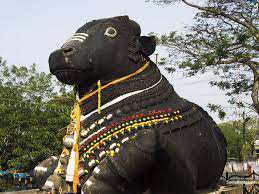

-in-Astrology.jpg)

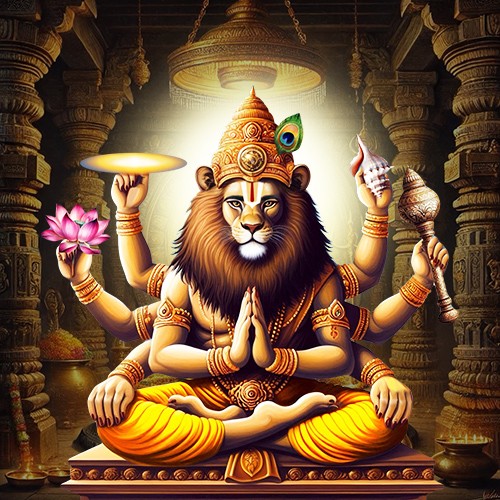
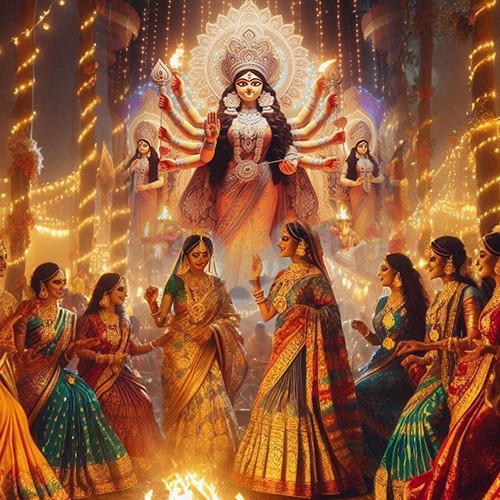



.jpg)
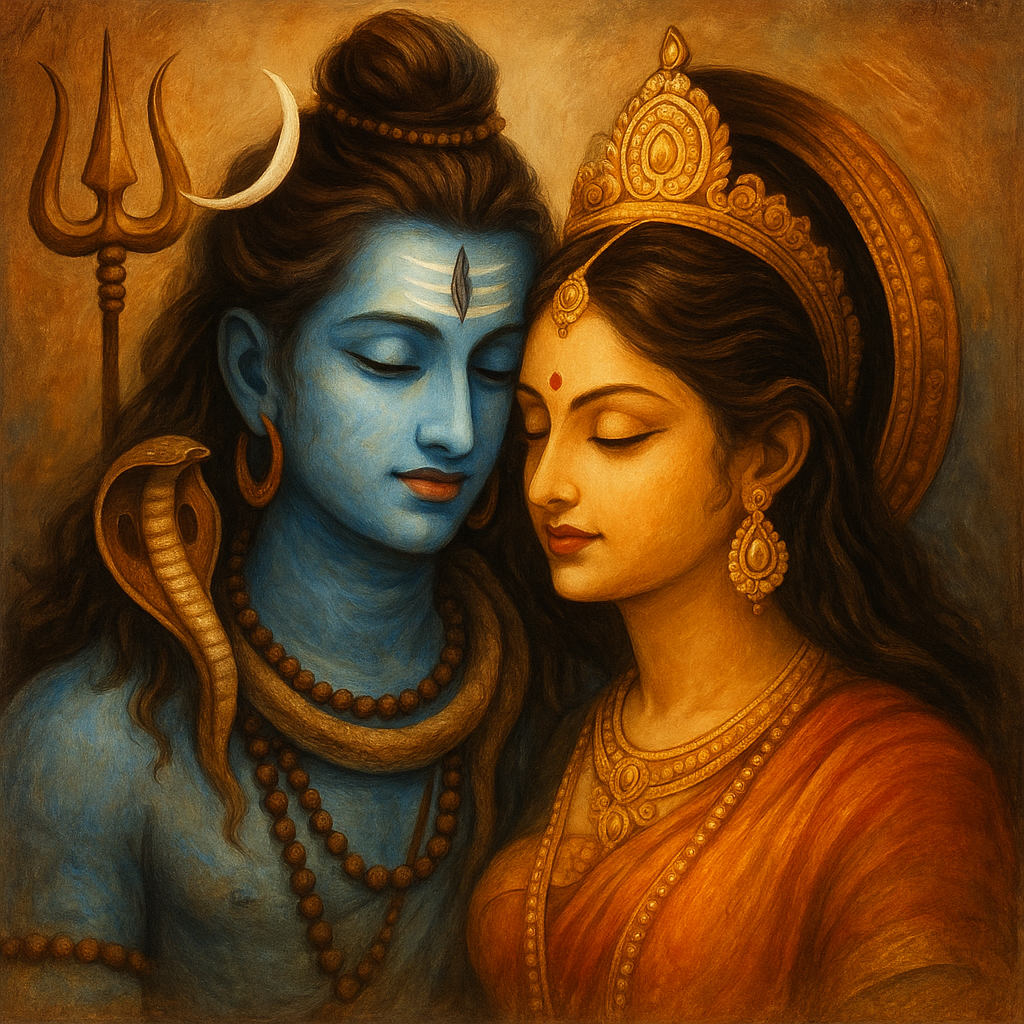
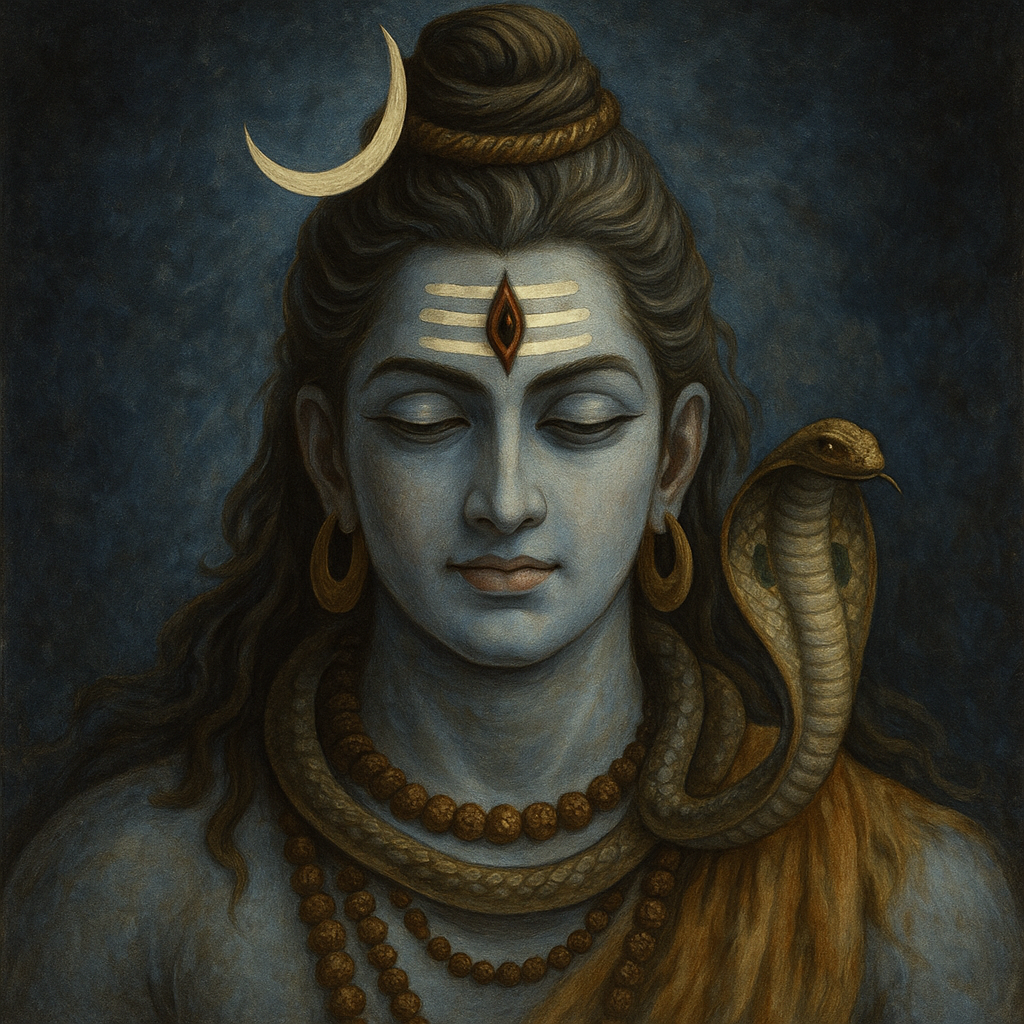
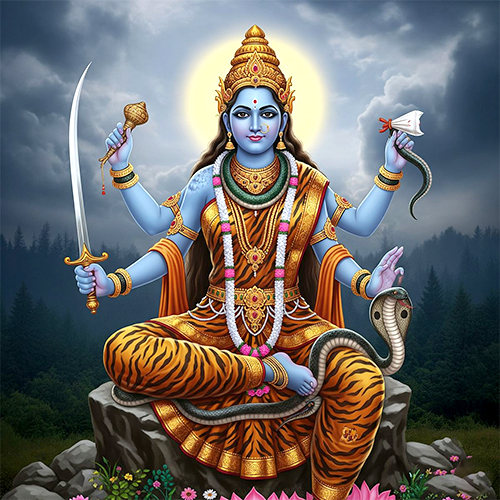
Comments 0
Leave your thought here